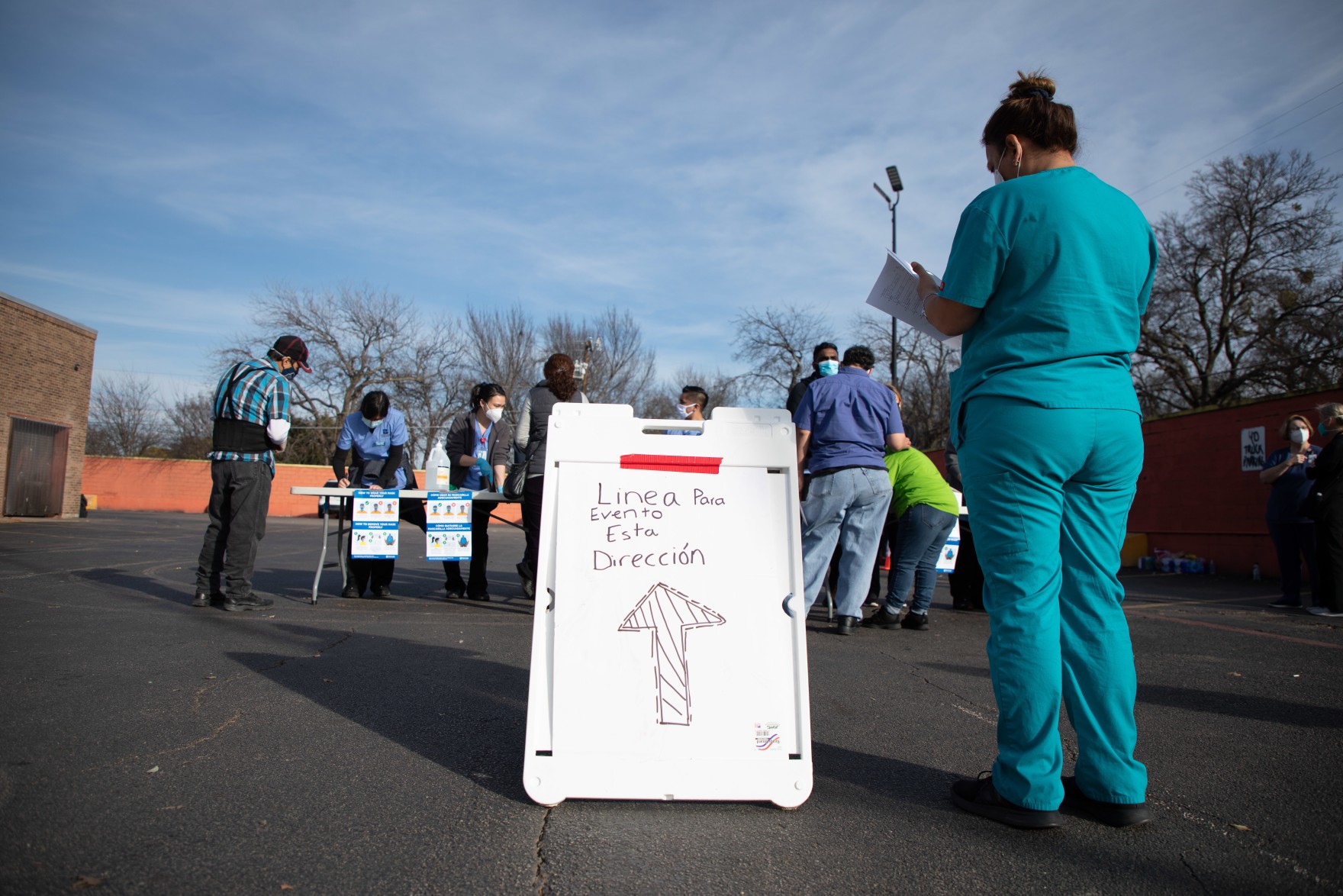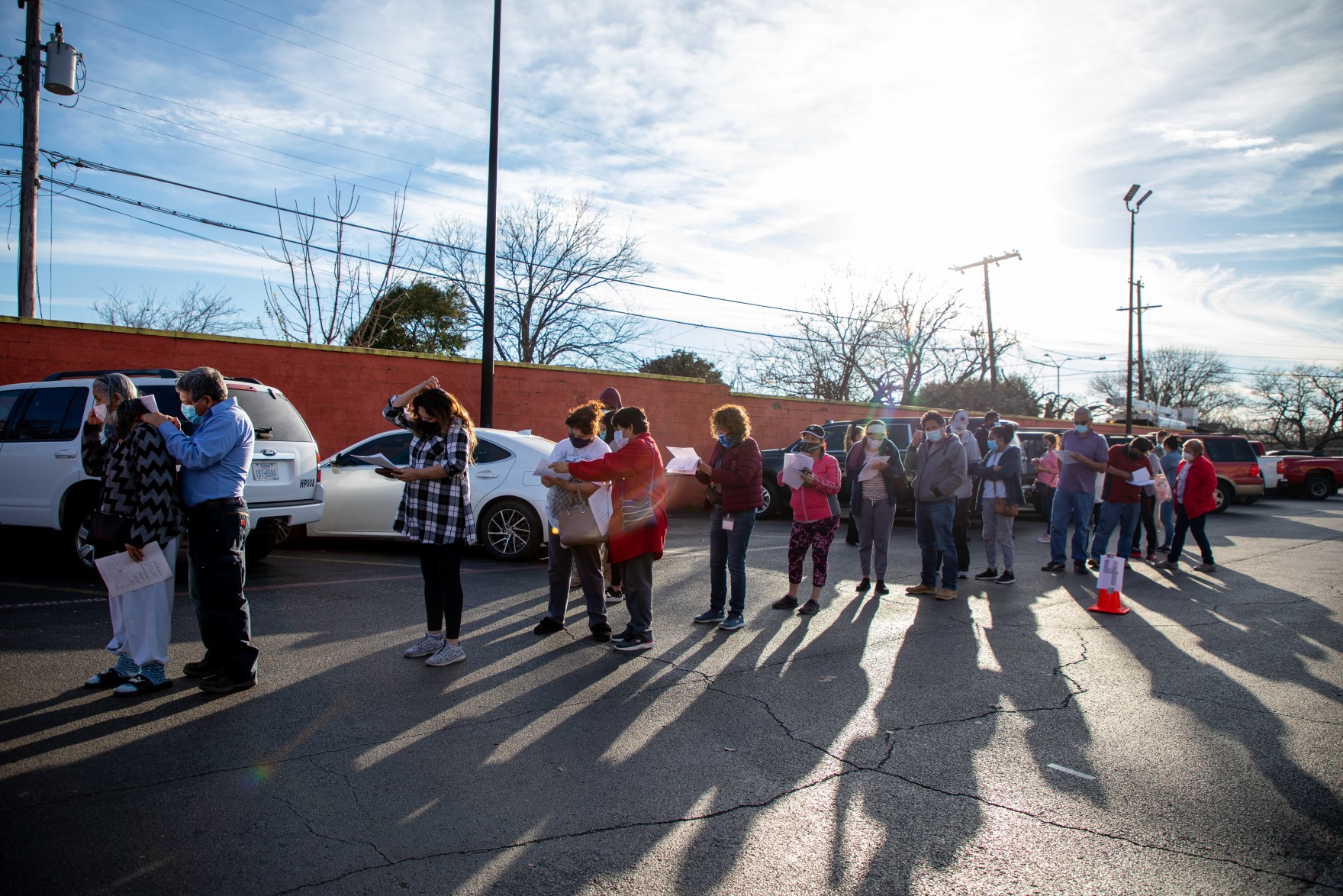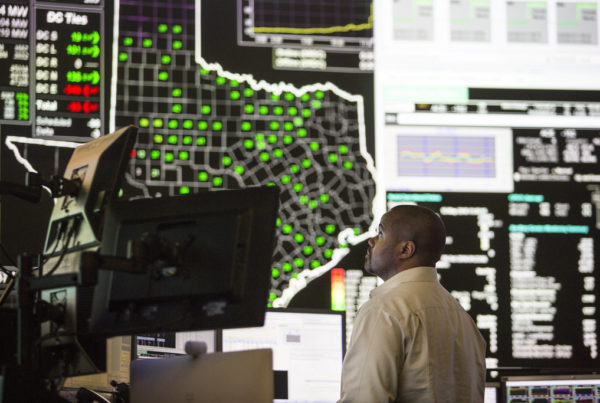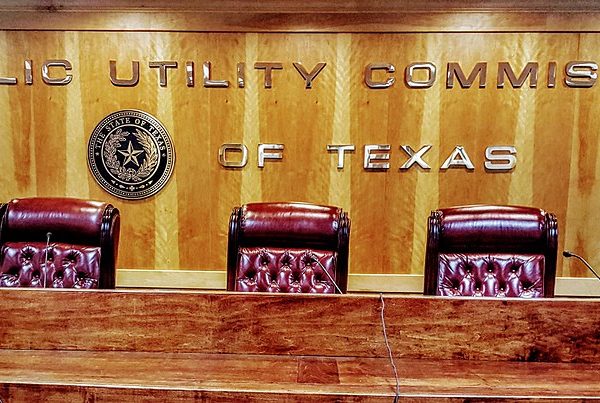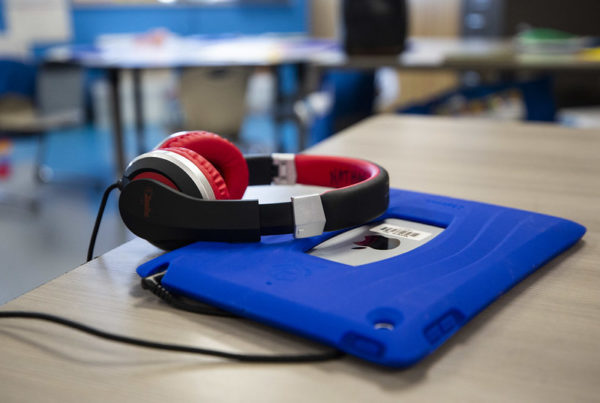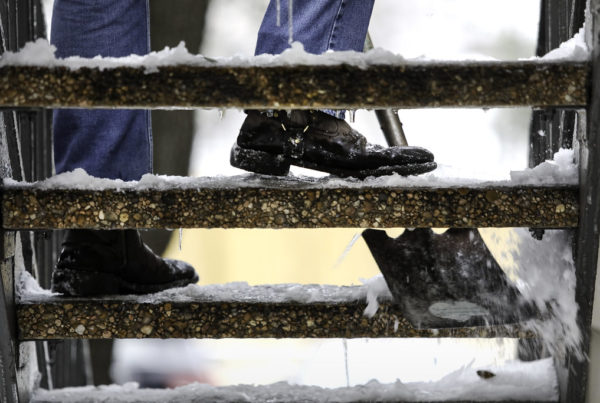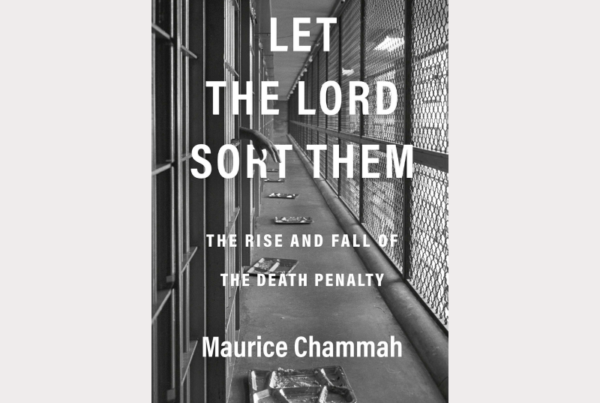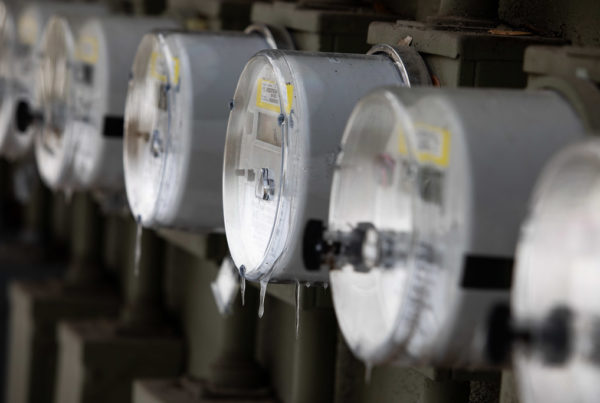Two weeks before the icy blast hit leaving many North Texans without electricity and water, 75-year-old Gloria Núñez Estrada was getting ready to go grocery shopping.
Before stepping out of her house, she caught a short news segment on the local Univision TV channel.
En Oak Cliff hay un evento de suscripción para vacunarse, announced the news anchor. “In Oak Cliff there is an event where you can register for the COVID-19 vaccine.”
The news segment informed Estrada about COVID-19 vaccine registration happening at her local supermercado.
Pero para registrarse era el problema. Nomas sabían que uno quería español y ya no le contestaban. No regresaban la llamada, Estrada said in Spanish. “Registering for the vaccine has been a headache.”
She had been calling the county’s registration phone number for weeks. Sometimes waiting more than two hours to reach someone and when someone finally answered her, they did not speak Spanish.
Estrada has hypertension and asthma. She lives alone and doesn’t drive. And like many in her neighborhood of Oak Cliff, she doesn’t have internet at home.
Y aparte para venir caminando. Yo no manejo, said Estrada in Spanish. “And on top of that I had to walk, I don’t drive.”
Estrada felt this was her only shot to register and that’s why she set out on foot and walked 15 minutes to the store to get in line.
Registration Hubs Meet People Where They Are At
Outside the Super Mercado Monterrey in Oak Cliff, tucked into a corner of the parking lot, volunteers with El Centro College are helping people register for the vaccine.
Some of the volunteers are bilingual and can help translate what information is needed in the vaccine registration forms. They also enforced social distancing and dispensed hand sanitizer.
In a city like Dallas bilingualism is crucial. According to PolicyMap, a data and mapping tool the city of Dallas uses, 1 in 5 people in Dallas speak only Spanish or it is their preferred language. In Oak Cliff, that number is 1 in 3.
Many Spanish speakers in the city depend on Spanish-language TV to get life-saving information.
Like Estrada, a lot of the people in line also caught the local Spanish news segment or found out this was happening from friends or neighbors.
Dallas resident Cruz Lopez also attended the event. Sheregistered herself, her brother and two other family members.
Pero como para uno de Mexicano ya vez que habla nomas español. Lo tiene que estar repitiendo por que si no, no van a saber tampoco, Lopez said in Spanish. “We only talk Spanish. If news channels or officials don’t repeat the information we will not know.”
Lopez said in her immediate circle there are only Spanish speakers and that word of these events is not getting to the people that most need to know. She found out about the registration by word of mouth.


